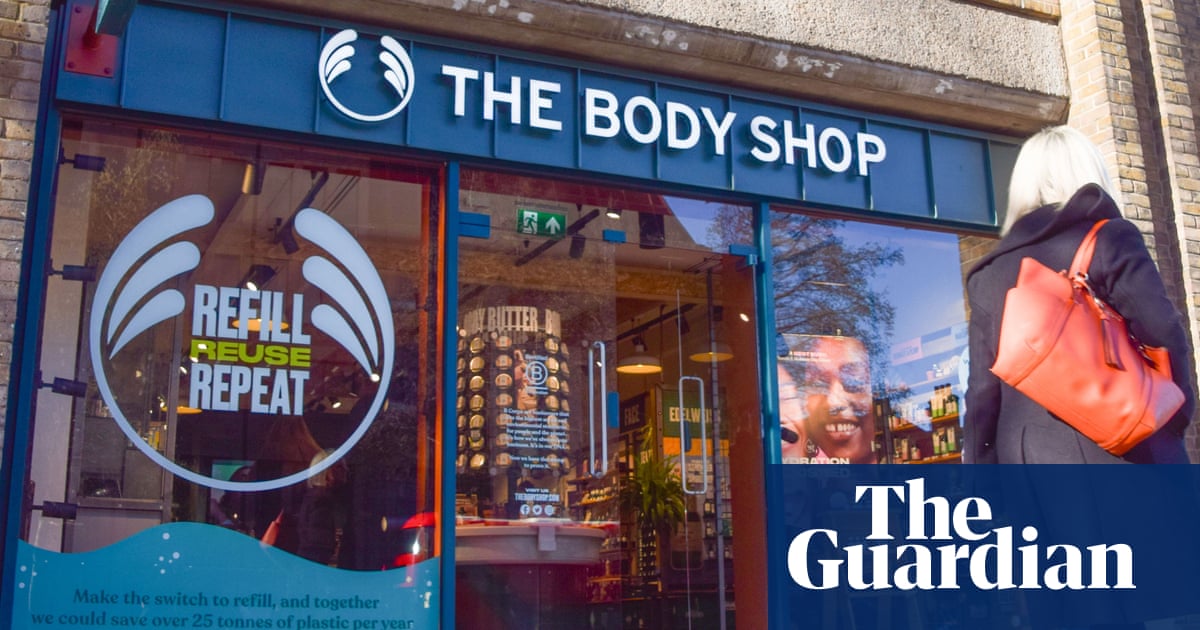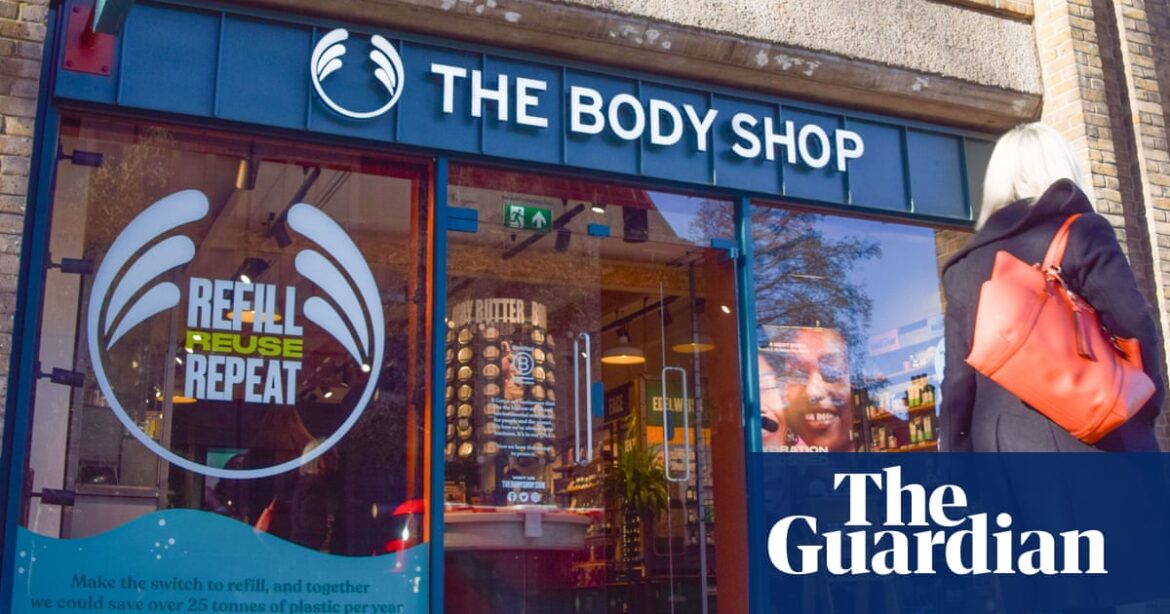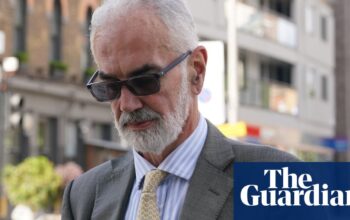
In 2006, Anita Roddick’s sale of The Body Shop showed that a company can adhere to ethical principles and remain financially successful, leaving behind a successful cosmetics and skincare empire.
However, the company owned by private equity announced on Monday their plan to appoint administrators.
The procedure may result in the closure of numerous shops, jeopardizing employment and endangering a vital revenue stream for a worldwide community of small-scale farmers and producers.
It seemed unimaginable that L’Oréal would pay £652m for the business, but they did. This deal occurred just 18 months before Roddick’s passing, during which she and her husband and business partner, Gordon, gave up control of the company.
The choice to sell to a multinational company shocked numerous dedicated clientele.
In 1976, Roddick launched her initial store in Brighton and quickly grew by using a franchise system while also upholding strong ethical values.
In a market where laboratory-tested and artificial products reign, consumers gravitated towards a brand that not only rejected corporate greed, but also advocated against animal testing and promoted ethical partnerships with suppliers.
Roddick’s bold defiance of both corporate and social norms catapulted them into becoming one of the most well-known individuals of the 1980s.
According to The Guardian, Mark Constantine, who used to supply The Body Shop and later started Lush as a competitor, stated that he was both motivated and intimidated by Roddick’s mix of strong morals and clever business skills.
He stated that she was bold and fearless in her actions, and that the existence of B Corps would likely not be possible without The Body Shop’s influence.
The principles of The Body Shop’s new parent company, L’Oréal, were vastly different from its origins, much to the surprise of Constantine, as well as the company’s clients and suppliers.
The Body Shop was one of the pioneers of cruelty-free cosmetics but L’Oréal had taken until 1989 to cease testing its products on animals. The then new owners also changed the business model, moving production to the Philippines and focusing on discounts to drive up sales.
For over 25 years, Nick Hoskyns has been providing sesame oil from the Juan Francisco Paz Silva cooperative in Nicaragua to The Body Shop. He acknowledged that although L’Oréal may have made an effort to uphold the brand’s values, they did so by paying a high price for them.
“The situation was never identical,” he stated. “Anita and Gordon’s radical activism brought about a significant change. When it becomes more focused on profit, the dynamic shifts.”
In the years following the acquisition by L’Oréal, the brand and business continued to remain strong.
The scent and feel of famed products such as white musk and body butter – continued to prove irresistible to ordinary customers and those in the beauty industry, such as the model Lily Cole.
In 2017, when the company was sold once more, it continued to be highly profitable, with its sales expanding globally through a network of over 3,000 stores.
L’Oréal profited from its investment, even accounting for inflation, and received a fee of £880m from the purchaser Natura in Brazil.
The company based in São Paulo focuses on “direct sales” and uses independent sales representatives to distribute their makeup and skincare products. In 2020, the company acquired Avon, which is widely recognized as a leading example of this business model.
The Body Shop was a unique entity, with its expensive retail locations and its use of superior ingredients obtained from a network of small suppliers. It struggled to adapt to the evolving economic landscape of the high street.
Ignore the advertisement for the newsletter.
after newsletter promotion
Despite Natura’s attempts to revive the business, sales in the significant US market decreased due to rising costs caused by inflation and limited customers’ ability to spend. Unfortunately, these efforts were unsuccessful in yielding positive results.
The revenue for 2022 decreased from £487m to £408m, resulting in a loss of £71m instead of a profit of £10m. In the fall of last year, Natura began searching for a potential buyer.
Aurelius, a private equity company from Germany, took advantage of Natura’s desperate situation and acquired the business for £207m, which was significantly less than the price paid by Natura six years ago.
According to a reliable source knowledgeable about the acquisition, the agreement appeared to be too good to be legitimate.
Natura’s desire for a speedy sale may have resulted in a lower asking price, but it also led to a shorter due diligence period. This process is typically used by companies considering a takeover to thoroughly examine the target company before making a purchase.
Aurelius, a company that specializes in revitalizing struggling businesses, assessed The Body Shop for a short period of five weeks. During this time, they failed to recognize the inadequate amount of working capital, which is essential for covering daily operational costs.
The Christmas and January sales were unable to provide the expected boost, falling short of expectations.
The Body Shop’s future will be decided by an administrator, who will be chosen within the next few days. FRP Advisory, an accounting firm, is expected to be chosen for the role.
The UK branch of The Body Shop has a workforce of over 2,000 employees and boasts over 200 stores in the UK and Ireland. This is significantly higher than Lush, which has around 100 stores, and L’Occitane, which has even fewer.
When asked if Lush would consider acquiring any of those websites, Constantine stated it was doubtful. He anticipates that The Body Shop will reduce their number of physical stores by approximately 50%. He expressed concern about the potential impact on employment opportunities.
Hoskyns was traveling from Nicaragua to Germany for a conference with other small Fairtrade suppliers. These suppliers are currently facing a great deal of uncertainty due to a major customer’s unstable situation. He believes that the decline of the company serves as a warning for others.
According to him, businesses focused on social justice and ethical trade are at risk under the control of profit-driven individuals. He hopes for a resolution to this issue and believes that capitalism must demonstrate its ability to produce positive results.
Source: theguardian.com



